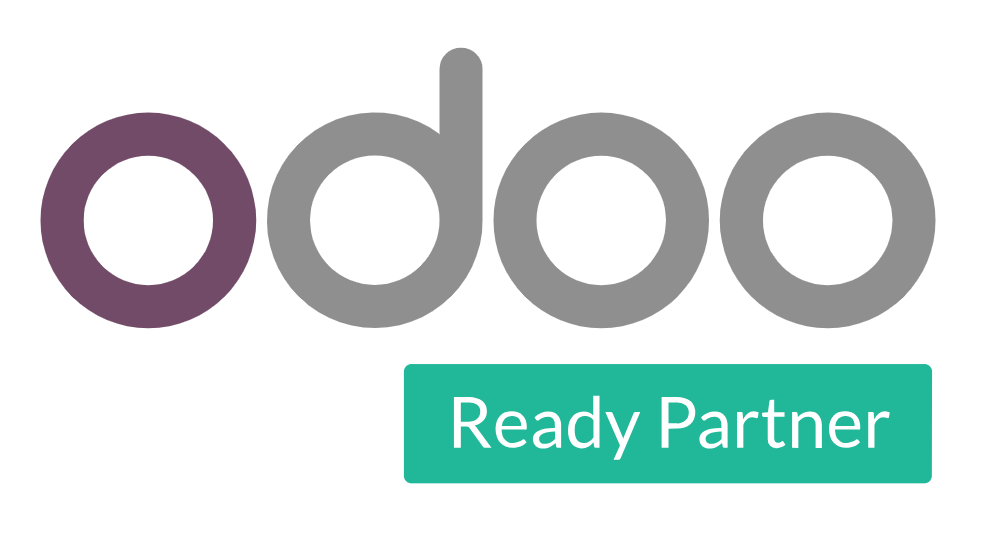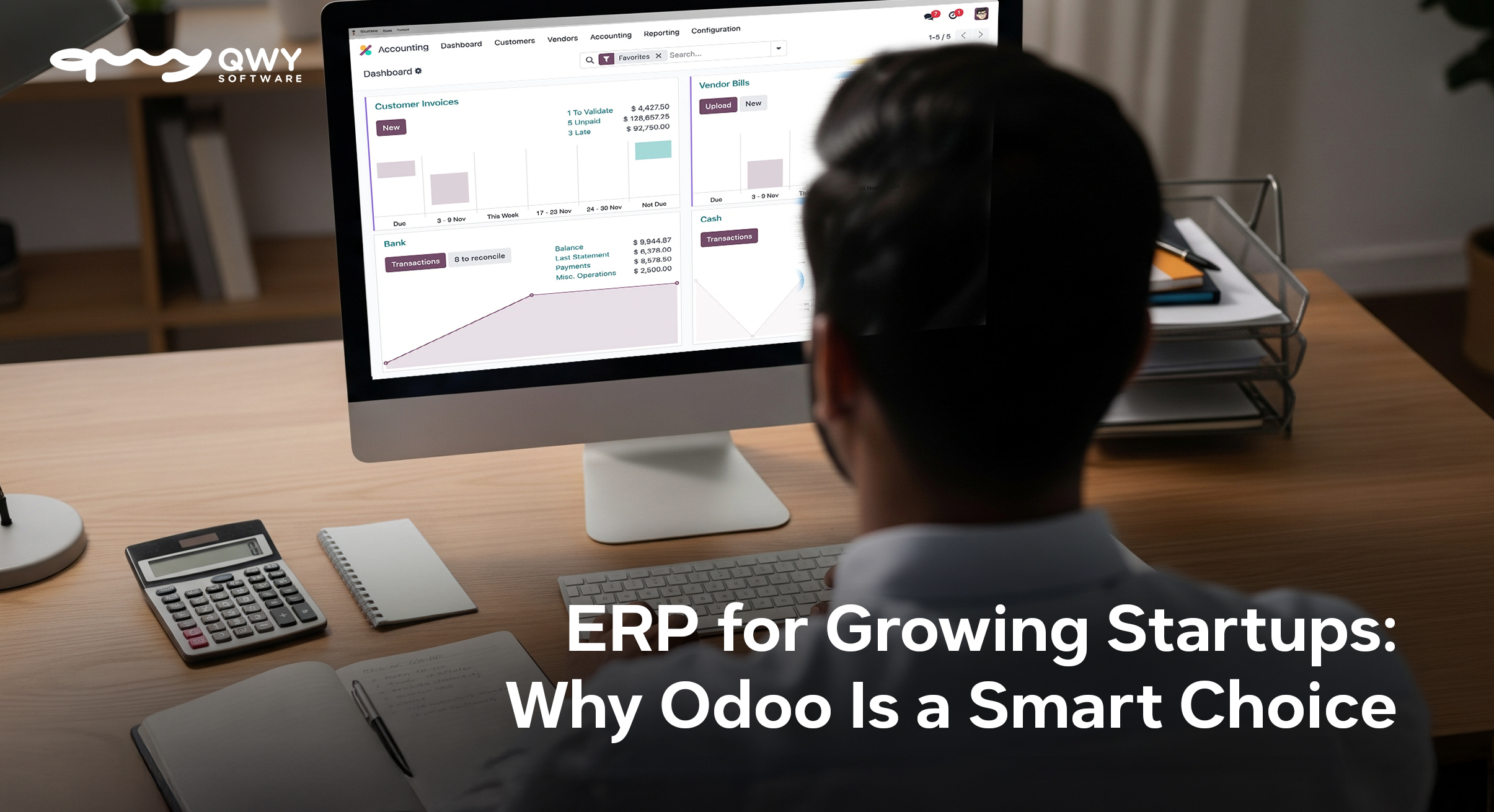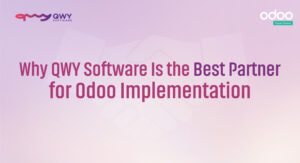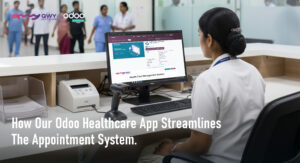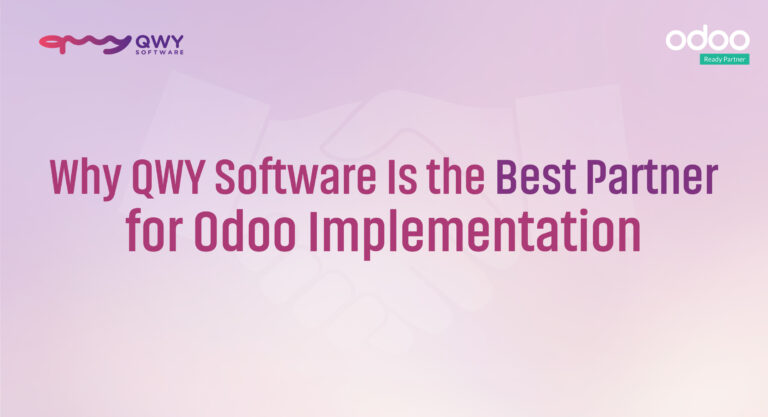In the high-pressure environment of a growing startup, every operational decision can influence whether you scale successfully or stall. Many founders juggle multiple disconnected tools for CRM, accounting, sales, e-commerce, inventory, and HR — each with its own learning curve, subscription cost, and data silo. This fragmented setup drains time, complicates reporting, and makes it difficult to react quickly to new opportunities or threats.
An ERP (Enterprise Resource Planning) system solves this by integrating your core processes into one seamless platform. Among the ERP options available, Odoo ERP software has gained remarkable popularity with startups because it is modular, scalable, open-source, and cost-efficient. When implemented by an experienced Odoo Development Company, it becomes more than just software — it becomes a growth engine for your business.
What Makes Odoo a Winning ERP for Startups
1. Comprehensive, All-in-One Platform
Odoo eliminates the headaches of using separate, incompatible systems by offering over 40 integrated business apps under one roof. CRM connects directly to sales, sales connect to invoicing, invoicing links to accounting — and everything ties back to a single database. This ensures no double entry, no mismatched data, and no switching between dashboards all day.
For example, a lead captured on your website can flow automatically into CRM, trigger a follow-up task in project management, generate an invoice upon sale, and update your financial reports instantly. It’s a seamless chain that makes scaling feel natural instead of chaotic.
2. Modular Architecture for Phased Growth
Startups don’t need — and often can’t afford — an “all features at once” ERP rollout. Odoo’s modular design lets you start lean with only the apps you need today, then expand later without migration headaches.
A tech startup might launch with just CRM, Sales, and Invoicing to manage early customer relationships and cash flow. Six months later, they could add Inventory for supply chain tracking or HR for managing new hires. Because all modules share the same database and interface, adoption is smooth at every stage.
3. Cost-Effective and Open-Source Friendly
Traditional ERP licenses can be financially crippling for small companies. Odoo’s open-source Community Edition offers a robust starting point with zero licensing fees. As your business matures, the Enterprise Edition unlocks advanced features like full mobile support, studio customization tools, and premium modules — all for a fraction of the cost of legacy ERP vendors.
This affordability enables startups to invest saved capital into growth initiatives like marketing, hiring, or product development instead of bloated software bills.
4. User-Friendly and Easy to Adopt
ERP adoption often fails because employees resist complex systems. Odoo counters this with a clean, modern interface designed to reduce the learning curve. Its intuitive menu structure, drag-and-drop features, and mobile responsiveness mean teams can start using it productively in days, not months.
This user-friendliness translates to better engagement, fewer training costs, and faster ROI.
5. Unlimited Integration and Customization
From the Odoo App Store’s thousands of ready-made add-ons to API integrations with PayPal, Shopify, Google Workspace, and QuickBooks, Odoo is built to fit your workflow — not the other way around. You can even create custom modules for niche processes without being tied to a vendor’s roadmap.
This flexibility ensures that as your market changes or your business model evolves, your ERP evolves with it.
6. Growth-Ready Scalability with Insights
Scaling isn’t just about adding more people or products — it’s about making smarter decisions faster. Odoo’s built-in reporting and dashboard tools turn raw data into actionable insights. Sales managers can forecast revenue with confidence, CFOs can track cash flow in real time, and founders can spot performance bottlenecks before they become problems.
Add in automation features — like sending reminder emails for unpaid invoices or auto-reordering stock when it runs low — and you free your team from repetitive tasks so they can focus on strategic work.
7. Rising Above Traditional ERP Constraints
Older ERP systems often lock startups into rigid workflows, require expensive consultants for even minor changes, and impose long-term contracts. Odoo’s open framework and modularity make it adaptable, while its pricing model removes the “locked-in” feeling. The result is an ERP you control, rather than one that controls you.
Odoo in Action: Modules for Different Growth Stages
| Growth Stage | Recommended Odoo Modules | How It Helps |
| Seed Stage | CRM, Invoicing, Project Management | Centralizes customer data, speeds up quoting and billing, ensures projects are delivered on time with minimal admin overhead. |
| Pre-Series A | Sales, eCommerce, Inventory, HR, Analytics | Enables multi-channel selling, keeps inventory optimized, streamlines hiring, and provides visibility into KPIs ahead of scaling up operations. |
In both stages, Odoo’s unified dashboards ensure finance, sales, marketing, and operations all work from the same live data — removing guesswork and enabling faster pivots.
Why Partnering with an Odoo Development Company Matters
While Odoo is powerful out-of-the-box, its true potential is unlocked with expert implementation. Certified Odoo Partners bring technical expertise and strategic guidance to tailor the ERP exactly to your processes.
- Expert Guidance – They assess your needs, recommend the right modules, and configure them correctly from day one.
- Strategic Efficiency – They handle complex integrations, data migration, and custom development so you avoid costly mistakes.
- Ongoing Support – With regular updates, bug fixes, and enhancements, your ERP stays secure, compliant, and aligned with business goals.
Working with specialists ensures your investment translates into real operational improvements, not just software sitting unused.
Conclusion
The early stages of a startup are all about agility — making quick decisions, adapting to change, and scaling without losing control. An ERP system like Odoo gives you the structure to manage complexity without sacrificing flexibility. By consolidating your operations into a single, integrated platform, you not only save time and costs but also gain the insights needed to make smarter growth decisions.
And while Odoo’s technology is powerful on its own, its full potential is realized when implemented by an experienced Odoo Development Company that understands both the platform and the unique challenges startups face. With the right partner, Odoo becomes more than just software — it becomes a competitive advantage that grows with your business.
If your startup is ready to align processes, boost productivity, and scale with confidence, now is the time to make the move.
